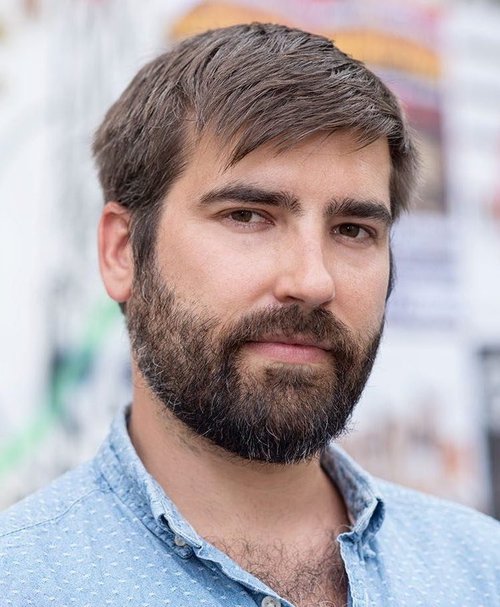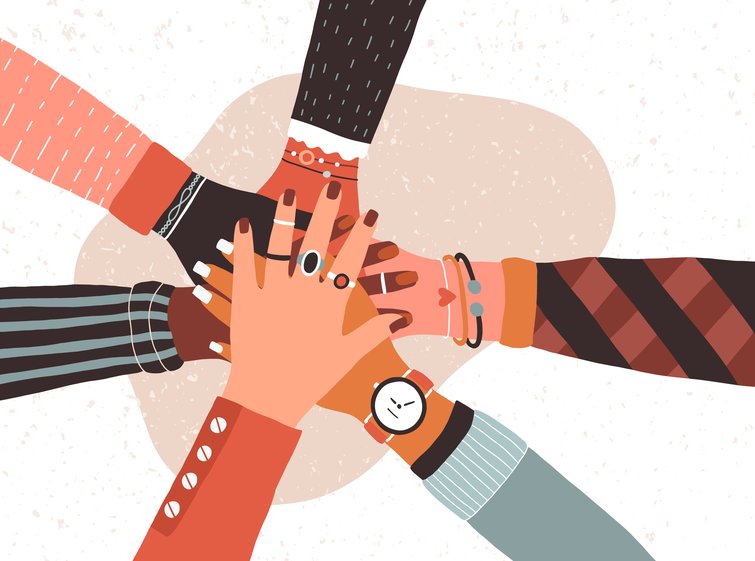
5 Tips for Managing Mental Health in Post-Production
Editor, colorist, and founder of The Finish Line, Zeb Chadfield shares his tips for putting your mental health first.

Almost 90% of off-screen film and TV professionals in the UK have experienced mental health issues on the job. If you look around your office (physical or virtual), that’s nine out of ten people you’ve ever worked with.
That statistic begs the question: How did this get so bad? To answer that question, and discover actionable solutions, we spoke with Zeb Chadfield, founder of The Finish Line.
In 2011, Chadfield suffered a nervous breakdown that led him to reevaluate his life and work. He went on to start The Finish Line with the goal of providing a space where artists could work and grow, while keeping mental health their priority.
Chadfield says that one of the biggest problems in the industry is long working hours, and just how normalized those hours have become. That problem is compounded by things like widespread imposter syndrome, making artists feel they should simply be lucky to have a job.
The issue is vast and complex, but there are steps everyone—whether studio heads or budding artists—can take to put mental health first.
1. Know Your Value

Don’t allow yourself and your passions to be exploited by people in the industry who will take advantage of you. We all have this imposter syndrome—we all feel so lucky to be here—then we accept the treatment as part and parcel of the job.
– Zeb Chadfield
Especially for those starting out, it’s easy to undervalue just how much you bring to the company. You’re new, and whether it’s your first, second, or third job offer, it may feel like your big break.
But, here’s the truth: Post-production companies need talent at all levels (especially as the industry is growing). Whether you bring years of experience or a fresh perspective, you need to own the value in it.
Chadfield warns that there will always be companies out there who will look to take advantage of your talents. Before you accept an offer (or continue on with a job that’s causing you undue stress), recognize that you have power in any situation, and only you can choose where to lend your skills.
2. Get It in Writing

Before actually taking a job, make sure there’s some sort of element in the contract or agreement that covers working overtime—and make sure those extra hours won’t be a common occurrence.
– Zeb Chadfield
If a company isn’t forthcoming about working hours, or how many extra hours they’d expect to meet a delivery, that’s a red flag. Knowing this information upfront is crucial to setting expectations if you do take the job, or giving you a perfectly valid reason to walk away.
The Finish Line structures projects around shorter days and longer timelines to keep workloads manageable. When overtime is needed, it comes with recovery time, as well as food and travel budgets.
If you’re an artist, it’s reasonable to expect the same from your employer. If you’re a studio head, consider building these practices into your business model.
3. Use the Best Tools for the Right Reasons

Faster systems and better tools were the first place I looked when starting The Finish Line. In the end, it’s the people who create the final product, but having the right tools can get them there quicker, and make their lives easier along the way.
– Zeb Chadfield
Ensuring you’re working with the best tools can save time and headaches. With post-production tech constantly evolving, it’s worth considering whether you can switch or upgrade your tools to buy back some time.
But, make no mistake, if this is a means to an end, that end is less time working, not more time to cram work in.
Chadfield also cautions against thinking about a job as your entire life. You can enjoy it. You can love it. However, you can and should find fulfillment in hobbies, relationships, and other things outside of work—and feel okay prioritizing those things.
After all, loving your job and sacrificing your life for it isn’t the same thing.
4. Speak up When Things Aren’t Working

When jobs go over schedule, and you’re constantly being asked to work longer hours, that’s not normal. Something is wrong, and it’s okay to speak up.
– Zeb Chadfield
As an employee working on a project, it’s fair to ask questions. If the project goes over, ask your manager to reflect on how it has gone wrong.
Figure out how you could restructure your work time or how the facility can handle the next project in a better way. Ask what delayed the project, or how this situation could be avoided in the future.
You can also ask if there’s a better way for you and the company to track time spent to ensure nothing is being overlooked.
A smart company will want to listen to (and keep) their talent. Don’t be afraid to make your voice heard.
5. Remember That a Humans-First Strategy Wins

People aren’t numbers on spreadsheets. When we recognize that, we can not only be a happier industry, but a more valuable one, as well.
– Zeb Chadfield
The Finish Line has doubled in size every year since its founding, and Chadfield attributes that to building policies around people. Chadfield encourages more studios and artists to adopt hourly billing, to avoid being exploited into working excessively long days.
For studio heads, Chadfield also encourages providing perks like flexible work hours, so parents don’t need to worry about picking up their kids from school, and providing access to therapy services.
For senior artists, there’s a lot of ways to set an example. Push back against clients. If they’re asking for three days of work and there are six hours left, manage their expectations and ask them to reign in their vision.
Don’t be afraid to have difficult conversations with your employers, and even with clients. Make it clear that your goal is to make everything better.
It may seem difficult to start implementing these changes. But, Chadfield’s biggest piece of advice? Do something. Start a conversation with your coworkers or employees.
If you’re in a leadership position, introduce flexible hours, and explain your new billing system to clients. (Guess what? They’ll adapt).
If you’re a new artist, walk into your next interview knowing your value and recognize predatory practices for what they are. Wherever you’re at, stick with it.
The Finish Line is proof that putting people first is always a winning strategy.
A few more industry tips, tricks, and advice for you:
- How to Battle Burnout in the Film and Video Industry
- Video Production Goes Global and Stays Remote as Industry Opens
- What Quarantines and Streaming Culture Could Mean for the Industry
- Industry Insights: What Makes a Successful Cinematographer
- Industry Insights: An Interview with Composer Guillaume Roussel
Cover image via GoodStudio.





